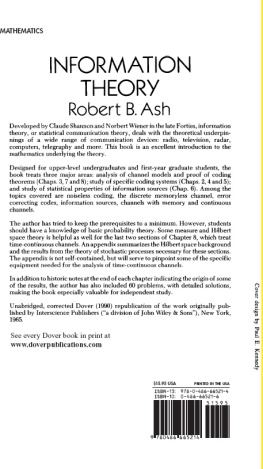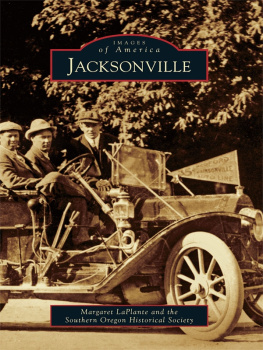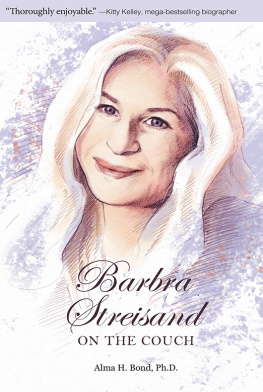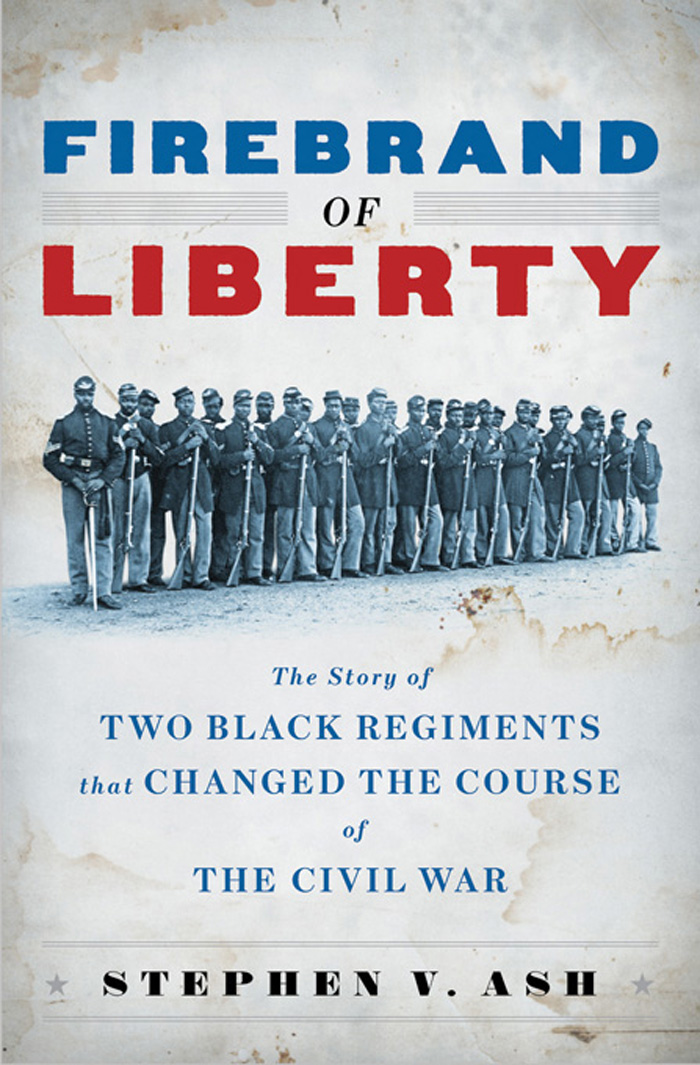FIREBRAND OF LIBERTY
ALSO BY STEPHEN V. ASH
Middle Tennessee Society Transformed, 18601870:
War and Peace in the Upper South (1988, 2006)
Messages of the Governors of Tennessee [editor]:
vol. IX, 19071921; and vol. X, 19211933 (1990)
When the Yankees Came:
Conflict and Chaos in the Occupied South, 18611865 (1995, 1999)
Tennesseans and Their History
[with Paul H. Bergeron and Jeanette Keith] (1999)
Secessionists and Other Scoundrels:
Selections from Parson Brownlows Book [editor] (1999)
A Year in the South: 1865:
The True Story of Four Ordinary People Who Lived Through the Most
Tumultuous Twelve Months in American History (2002, 2004)
Nineteenth-Century America: Essays in Honor of Paul H. Bergeron
[coeditor, with W. Todd Groce] (2005)
FIREBRAND OF LIBERTY

The Story of Two Black Regiments That Changed the Course of the Civil War
STEPHEN V. ASH

W. W. NORTON & COMPANY
NEW YORK LONDON
Copyright 2008 by Stephen V. Ash
All rights reserved
Printed in the United States of America
First Edition
For information about permission to reproduce selections from this book, write to Permissions, W. W. Norton & Company, Inc., 500 Fifth Avenue, New York, NY 10110
For information about special discounts for bulk purchases, please contact W. W. Norton Special Sales at specialsales@wwnorton.com or 800-233-4830
Manufacturing by The Courier Companies, Inc.
Book design by M. Kristen Bearse
Production manager: Andrew Marasia
Library of Congress Cataloging-in-Publication Data
Ash, Stephen V.
Firebrand of liberty : the story of two Black regiments that changed the course of the Civil War / Stephen V. Ash. 1st ed.
p. cm.
Includes bibliographical references and index.
ISBN 978-0-393-06586-2 (hardcover)
eISBN 978-0-393-06990-7
1. United StatesHistoryCivil War, 18611865Participation, African American. 2. United States. Army. South Carolina Volunteers, 1st (18621864) 3. United States. Army. South Carolina Volunteers, 2nd (18631864) 4. United StatesHistoryCivil War, 18611865Regimental histories. 5. South CarolinaHistoryCivil War, 18611865Regimental histories. 6. Jacksonville (Fla.)History, Military19th century. 7. FloridaHistoryCivil War, 18611865Campaigns. 8. United StatesHistoryCivil War, 18611865Campaigns. 9. African American soldiersHistory19th century. 10. United StatesArmyAfrican American troopsHistory19th century. I. Title.
E540.N3A84 2008
973.7'4150975912dc22
2008002503
W. W. Norton & Company, Inc.
500 Fifth Avenue, New York, N.Y. 10110
www.wwnorton.com
W. W. Norton & Company Ltd.
Castle House, 75/76 Wells Street, London W1T 3QT
1 2 3 4 5 6 7 8 9 0
TO
OMAR L. ASH, 19211980
LAWRENCE M. ASH, 19521972
CONTENTS
ACKNOWLEDGMENTS
IT IS A PLEASURE TO ACKNOWLEDGE HERE, however inadequately, the help and encouragement I have received in bringing this book to completion.
At or near the top of every historians list of those who deserve thanks are librarians and archivists. I have called on many for assistance with this project, and they have invariably responded graciously. I am especially grateful to several at my own institution, the University of Tennessee: Aaron Purcell, Nick Wyman, and Bill Eigelsbach in Special Collections; Anne Bridges, library liaison for history; and the Documents and Microforms staff. I also thank my university for providing not only bountiful library resources but also a professional development leave that sped this books completion.
I have benefited too from valuable research assistance from a number of other people, especially John Kvach and Cinnamon Brown, history graduate students at the University of Tennessee; Jennie Leland, history graduate student at the University of Maine; John Ulrich, a student at Harvard University; and Karen Needles, of Documents on Wheels, College Park, Maryland.
Several of my friends in the history profession gave generous help that made this a better book. Dan Crofts, Nelson Lankford, and Mark Wetherington read the manuscript and offered insightful suggestions; John Cimprich, Dan Sutherland, Dean Thomas, and Dan Schafer provided very useful leads on sources. My thanks go also to three people outside the history profession who have helped me greatly: Deborah Gershenowitz, adviser and friend; Maria Guarnaschelli, my editor at Norton; and David Miller of the Garamond Agency, who is not only a fine agent but also a fine editor. Among my past and present coworkers in the UT History Department, nine deserve special mention for their friendship and encouragement: Paul Bergeron, Todd Diacon, Dan Feller, Ernie Freeberg, Lorri Glover, Kim Harrison, Catherine Higgs, Sarah Krisko, and Bruce Wheeler.
My family has been an unfailing source of warm affection, strong support, and good company; my deepest thanks go once again to Jeanie, Mom, Ellen, Ginger, Landon, and my cousins. This book is dedicated to two of my kinfolk, my father and brother, who if they had lived long enough would have joined the others in celebrating its publication.
PREFACE
IT WAS, BY ANY RECKONING, a curious military expedition. There was no other like it during the American Civil War; perhaps there has never been another like it. Although shaped by strategy, it was born of idealism and redemptive fervor. Its mission evoked reactions ranging from exultation to horror. It ended in frustration, wrath, and flames.
It began in early March 1863, nine weeks after President Abraham Lincoln issued the Emancipation Proclamation, when two regiments of blue-uniformed black troops, some nine hundred men, boarded transport vessels at a Union-held island off the South Carolina mainland. From there they steamed southward along the Atlantic coast and then up the St. Johns River into the heart of northeastern Florida, where they seized the town of Jacksonville. Most of these soldiers had been slaves just a few weeks or months earlier, men who had labored with hoe and plow on the cotton and rice plantations of coastal South Carolina, Georgia, and Florida to enrich their masters. Now, with a very different purpose, they wielded musket and bayonet. The officers commanding these regiments were prominent Northern abolitionists, men of passionate commitment who went to war not only to restore the Union but also to eradicate the scourge of slavery in America and transform the South.
The bold incursion into Confederate territory that these black soldiers and their white officers undertook was no mere raid. It was intended to establish a permanent post in Floridas interior. That post would have a very special mission, to serve as a beacon of freedom, a haven for black fugitives, and a firebrand of liberty that would help ignite the destruction of Southern slavery from within. Those who launched the expedition saw it also as an opportunity to confirm the value of black troops to the Union cause and add to their numbers. They perceived in it too strategic advantages that would help defeat the Rebel armies. Many people, both in and outside the Union military, hoped that the expedition would also secure a proving ground where the reformation of the rebellious and benighted South might begin. Great hopes were invested in this small expedition, and there were those who believed that if successful, it might change the course of the Civil War.















